Session 01: Deep Learning & Neural Networks
Deep learning is a powerful subset of machine learning that uses neural networks to mimic the way the human brain processes information. At its core, it involves multiple layers of interconnected nodes or neurons that automatically learn patterns from large volumes of data. Neural networks are especially effective at handling complex tasks such as image recognition, natural language processing, and speech detection.
Each layer in a deep neural network extracts increasingly abstract features, allowing the model to make accurate predictions or classifications. Unlike traditional algorithms, deep learning models improve with more data and computational power, enabling breakthroughs in fields like healthcare, autonomous driving, finance, and robotics.
Session 02: Natural Language Processing
The Natural Language Processing (NLP) track delves into advancements in AI that enable machines to understand, interpret, and generate human language. Covering topics such as language modeling, text classification, machine translation, sentiment analysis, and speech recognition, this track highlights the potential of NLP in transforming industries like customer service, healthcare, and media.
Key sessions will explore the workings of large language models, advancements in transformers, and ethical considerations surrounding biases in NLP models. Participants will discover cutting-edge techniques for real-time text and speech processing, multilingual language understanding, and conversational AI.
Session 03: Computer Vision
The Computer Vision track showcases the latest breakthroughs in enabling machines to see, understand, and interpret visual data. Focusing on topics such as image recognition, object detection, video analysis, and scene understanding, this track highlights how computer vision is transforming sectors like healthcare, security, autonomous vehicles, and retail.
Participants will engage in sessions that cover foundational techniques in convolutional neural networks (CNNs), advancements in transformers for vision, and emerging applications in augmented and virtual reality (AR/VR). Key sessions will also address practical challenges, such as real-time video processing, 3D modeling, and improving model accuracy in diverse and complex environments.
Session 04: Ethics, Fairness, and AI Policy
The Ethics, Fairness, and AI Policy track addresses critical considerations in building responsible and inclusive AI systems. With the rapid advancement of AI technologies, ensuring fairness, transparency, and accountability has become essential. This track explores topics such as algorithmic bias, ethical decision-making, data privacy, and regulatory frameworks for AI.
Sessions will feature discussions on mitigating biases in AI models, fostering inclusivity, and implementing responsible AI practices across industries. Experts from academia, industry, and policy will provide insights into designing AI systems that respect privacy, minimize harm, and comply with emerging global regulations. The track will also examine frameworks and tools that help evaluate fairness and ethical impact, aiming to create AI that is socially responsible and ethically sound.
Session 05: Reinforcement Learning (RL)
The Reinforcement Learning (RL) track dives into cutting-edge research and applications in AI systems that learn through interaction and feedback. Focused on topics like deep reinforcement learning, multi-agent systems, and reward modeling, this track highlights the potential of RL in solving complex decision-making problems across fields like robotics, gaming, finance, and healthcare.
Attendees will explore recent advances in RL algorithms, including Q-learning, policy gradients, and model-based RL, as well as methods to improve efficiency and scalability. Practical sessions will demonstrate RL's real-world applications, from training autonomous vehicles and personalizing user experiences to optimizing resource management and strategic planning.
Session 06: Edge AI and IoT Applications
The Edge AI and IoT Applications track explores innovations in deploying AI directly on edge devices, enabling real-time decision-making without relying on cloud processing. This track covers key topics like efficient algorithms for edge computing, low-latency data processing, and security in IoT ecosystems. Participants will learn how to optimize AI models for resource-constrained devices like smartphones, wearables, sensors, and industrial IoT equipment.
Sessions will highlight practical applications in smart cities, healthcare, manufacturing, and home automation, demonstrating how Edge AI enhances responsiveness, reduces bandwidth requirements, and maintains data privacy. Attendees will gain insights into edge-friendly machine learning frameworks, such as TensorFlow Lite and TinyML, and discover strategies for managing distributed systems.
Session 07: AI in Healthcare
The AI in Healthcare track showcases transformative AI applications designed to enhance patient care, streamline clinical workflows, and drive medical research. Covering topics like medical imaging, predictive analytics, genomics, and personalized medicine, this track highlights how AI improves diagnostic accuracy, accelerates drug discovery, and supports healthcare decision-making.
Key sessions will focus on practical implementations of machine learning in disease prediction, early diagnosis, and treatment recommendations. Attendees will explore real-world case studies, from AI-driven imaging analysis in radiology to virtual health assistants and remote monitoring for chronic diseases. Ethical considerations, including data privacy and regulatory compliance in medical AI, will also be addressed.
Session 08: Data Science and Big Data
The Data Science and Big Data track focuses on leveraging large datasets to extract valuable insights and drive informed decision-making across various industries. Covering essential topics such as data engineering, scalable algorithms, machine learning pipelines, and big data technologies, this track highlights the critical role of data science in today's data-driven world.
Participants will explore advanced techniques for data wrangling, visualization, and analysis, using tools like Apache Spark, Hadoop, and cloud-based data solutions. Key sessions will cover best practices for building and deploying machine learning models at scale, ensuring data quality, and maintaining security and privacy.
Session 09: Quantum Computing and AI
The Quantum Computing and AI track explores the intersection of quantum computing and artificial intelligence, highlighting the potential of quantum algorithms to revolutionize machine learning and data processing. As quantum technology advances, it offers new paradigms for solving complex problems that are intractable for classical computers.
Participants will delve into key topics such as quantum machine learning algorithms, quantum data encoding, and the implications of quantum computing for optimization, simulation, and large-scale data analysis. Sessions will feature expert discussions on practical applications of quantum AI in fields like drug discovery, financial modeling, and cryptography.
Session 10: Human-Computer Interaction (HCI) and AI
The Human-Computer Interaction (HCI) and AI track focuses on the integration of artificial intelligence into user experience design, enhancing how humans interact with technology. This track covers critical topics such as AI-driven user interfaces, conversational agents, gesture recognition, and accessibility in digital environments.
Participants will explore innovative applications of AI in creating intuitive, responsive interfaces that adapt to user needs and preferences. Key sessions will highlight advancements in natural language processing for voice-activated systems, the role of AI in personalizing user experiences, and the design of intelligent systems that enhance accessibility for individuals with disabilities.
Session 11: AI Applications
The AI Applications track showcases the diverse ways artificial intelligence is being implemented across various sectors, highlighting innovative solutions that drive efficiency, enhance decision-making, and create new opportunities. This track covers a broad range of applications, including but not limited to finance, manufacturing, retail, education, transportation, and entertainment.
Participants will explore real-world case studies demonstrating how AI technologies, such as machine learning, natural language processing, and computer vision, are transforming operations and customer experiences. Key sessions will focus on applications like predictive analytics for demand forecasting, AI-driven marketing strategies, autonomous systems in logistics, and intelligent tutoring systems in education.
Session 12: AI for Cybersecurity
Artificial Intelligence (AI) is revolutionizing cybersecurity by enabling faster threat detection, response, and prevention. AI systems can analyze vast amounts of data in real-time to identify unusual patterns, detect malware, and recognize phishing attempts. Machine learning algorithms continuously learn from new threats, making defenses smarter over time. AI also enhances automation in incident response, reducing the time needed to react to attacks. From securing networks to protecting user identities, AI helps organizations stay ahead of evolving cyber threats. As cyberattacks become more sophisticated, integrating AI into cybersecurity strategies is essential for building resilient and proactive defense systems.
Session 13: AI for Education
Artificial Intelligence (AI) is transforming education by personalizing learning experiences, enhancing teaching methods, and improving administrative efficiency. AI-powered tools can adapt content to suit individual student needs, track progress, and provide instant feedback. Virtual tutors and chatbots support learners outside the classroom, while intelligent systems help educators identify learning gaps and adjust instruction accordingly. AI also automates tasks like grading and scheduling, allowing teachers to focus more on student engagement. From smart content creation to immersive learning through AI-driven simulations, the technology is reshaping how knowledge is delivered and accessed, making education more inclusive, efficient, and learner-centric.
Session 14: AI for Sustainability
Artificial Intelligence (AI) plays a crucial role in promoting sustainability by helping monitor, predict, and manage environmental challenges. AI can analyze vast datasets to track climate change, optimize energy usage, and reduce waste. In agriculture, it supports precision farming by predicting weather patterns, soil conditions, and crop yields, leading to resource-efficient practices. AI also aids in managing renewable energy grids, detecting pollution, and improving recycling processes. By enabling smarter decision-making and automation, AI empowers industries and governments to adopt eco-friendly practices. Overall, AI is a powerful tool in the global effort to build a more sustainable and resilient future.
Session 15: Robotics
Robotics is a field that combines engineering, computer science, and artificial intelligence to design and build machines capable of performing tasks autonomously or semi-autonomously. Robots are used in various industries, including manufacturing, healthcare, space exploration, and agriculture. They can handle repetitive, dangerous, or precise tasks with high efficiency and accuracy. Advances in AI have made modern robots more intelligent, enabling them to learn from data, interact with humans, and adapt to dynamic environments. From surgical robots to autonomous vehicles, robotics is transforming the way we live and work, offering innovative solutions to real-world challenges and improving productivity across sectors.
Session 16: Explainable AI (XAI)
Explainable AI (XAI) refers to artificial intelligence systems designed to make their decisions and actions understandable to humans. Unlike traditional "black box" models, XAI provides clear reasoning behind AI predictions, helping users trust and interpret the outcomes. This transparency is especially important in high-stakes fields like healthcare, finance, and law, where accountability and fairness are critical. XAI techniques include visualizations, rule-based summaries, and simplified models that highlight key features influencing decisions. By making AI more transparent and interpretable, XAI bridges the gap between human understanding and machine intelligence, fostering ethical, responsible, and trustworthy use of AI technologies.
Session 17: AI in Finance and Economics
Artificial Intelligence (AI) is reshaping finance and economics by enabling faster, smarter decision-making and risk management. In finance, AI is used for fraud detection, algorithmic trading, credit scoring, and personalized financial services. Machine learning models analyze large datasets to identify patterns, forecast market trends, and optimize investment strategies. In economics, AI supports data-driven policy making, economic modeling, and real-time analysis of complex systems. AI also enhances customer service through chatbots and automates routine tasks, increasing efficiency. As AI continues to evolve, it plays a crucial role in driving innovation, improving accuracy, and transforming how financial and economic systems operate globally.
Session 18: AI in Agriculture and Environment
Artificial Intelligence (AI) is revolutionizing agriculture and environmental management by enabling smarter, data-driven practices. In agriculture, AI helps with precision farming using sensors, drones, and machine learning to monitor crop health, predict yields, and optimize irrigation and pesticide use. It enhances productivity while reducing waste and resource consumption. For environmental protection, AI analyzes satellite images, forecasts climate patterns, and detects pollution or deforestation in real time. AI models also support wildlife conservation by tracking animal movements and predicting threats. By promoting efficiency and sustainability, AI is a powerful tool for addressing global challenges in food security and environmental conservation.
Session 19: AI in Manufacturing and Industry 4.0
Artificial Intelligence (AI) is a key driver of Industry 4.0, transforming manufacturing through automation, data analytics, and smart decision-making. AI-powered systems optimize production lines, predict equipment failures through predictive maintenance, and reduce downtime. Machine learning enhances quality control by identifying defects in real time, while robotics improves efficiency and safety. AI also supports supply chain management with accurate demand forecasting and resource planning. By integrating IoT, cloud computing, and AI, Industry 4.0 enables intelligent factories that are more agile, efficient, and responsive to market demands paving the way for a new era of advanced, data-driven manufacturing.
Session 20: AI in Entertainment and Media
Artificial Intelligence (AI) is transforming the entertainment and media industry by personalizing content, automating production, and enhancing user experiences. Streaming platforms use AI to recommend shows and movies based on viewer preferences. In content creation, AI generates music, scripts, and even deepfake videos, opening new creative possibilities. AI-driven tools assist in video editing, animation, and visual effects, speeding up workflows. In gaming, AI creates intelligent NPC behavior and dynamic environments. Additionally, media companies use AI to analyze audience engagement and optimize advertising. Overall, AI is reshaping how content is created, distributed, and consumed across entertainment and media platforms.
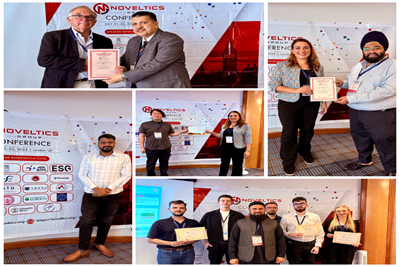









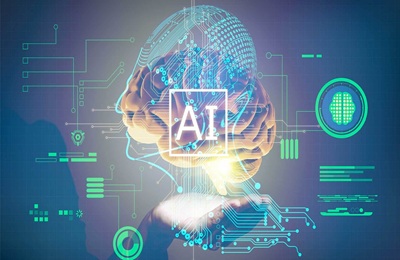






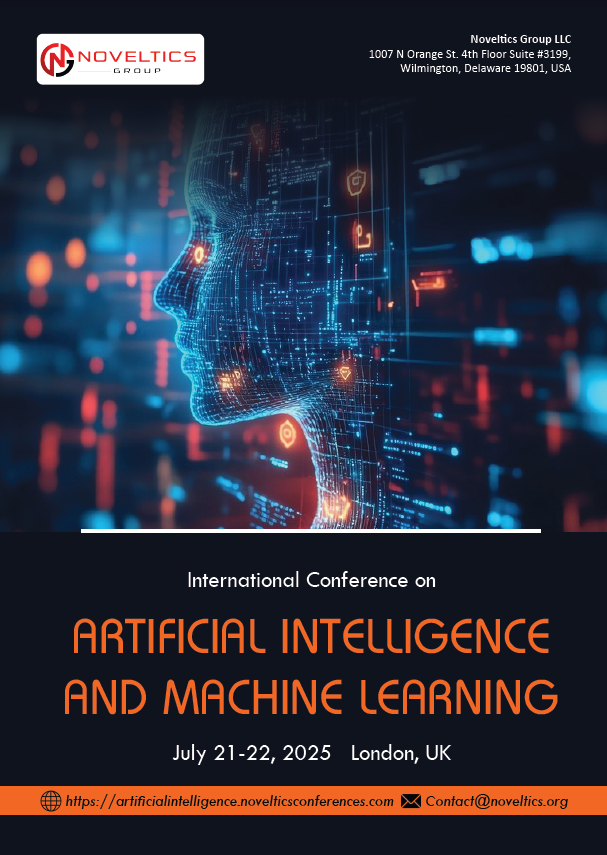
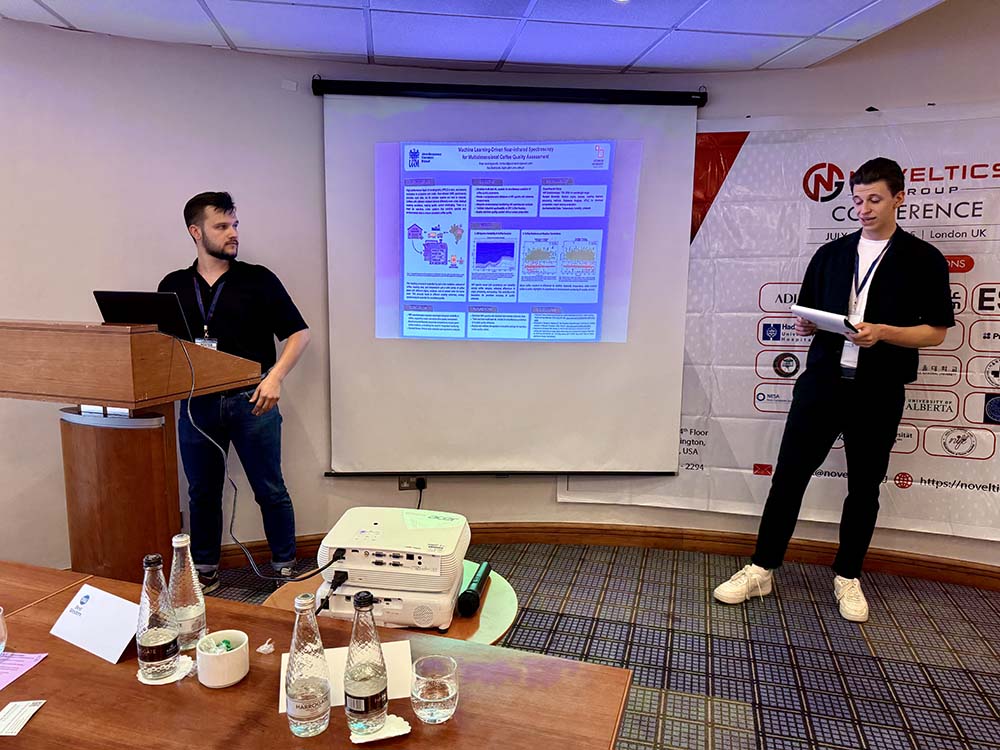
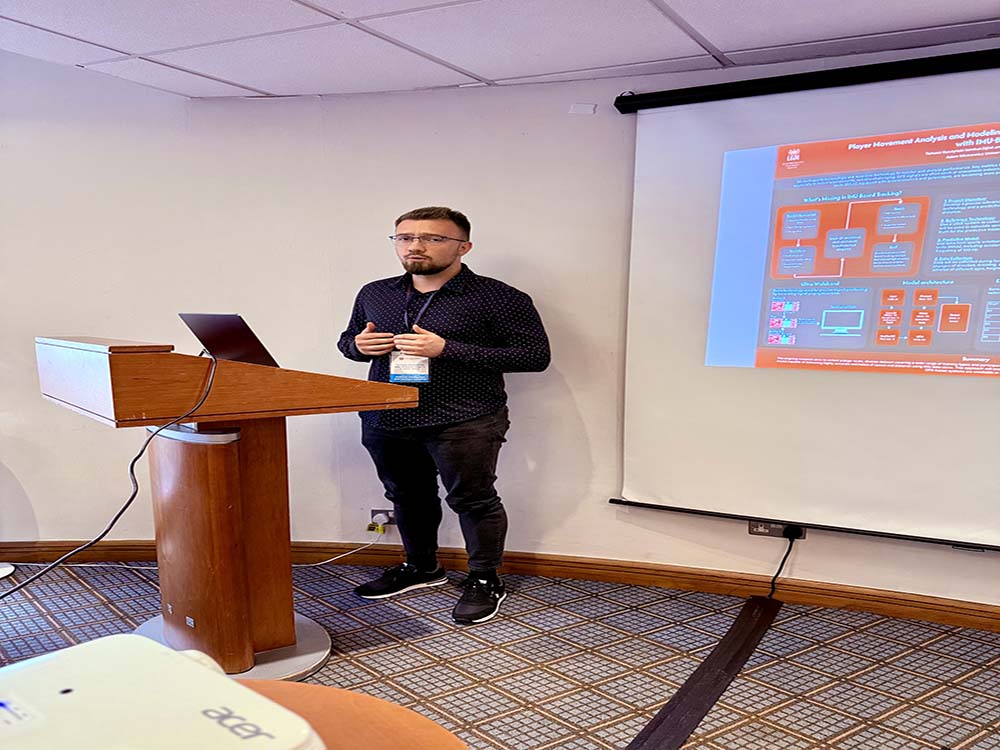

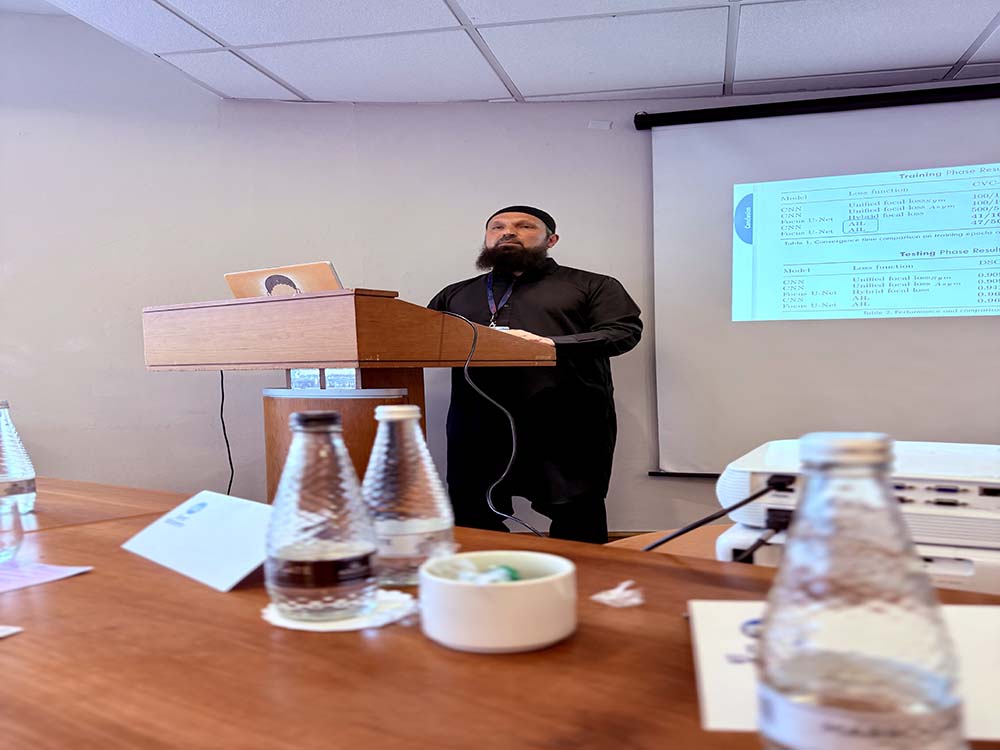
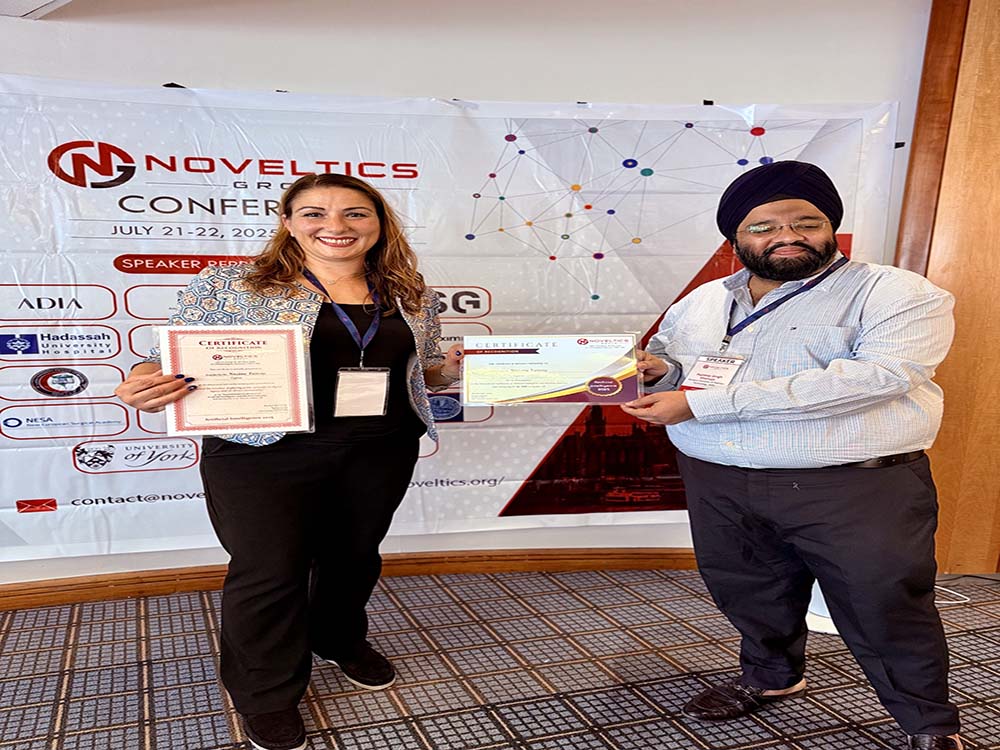
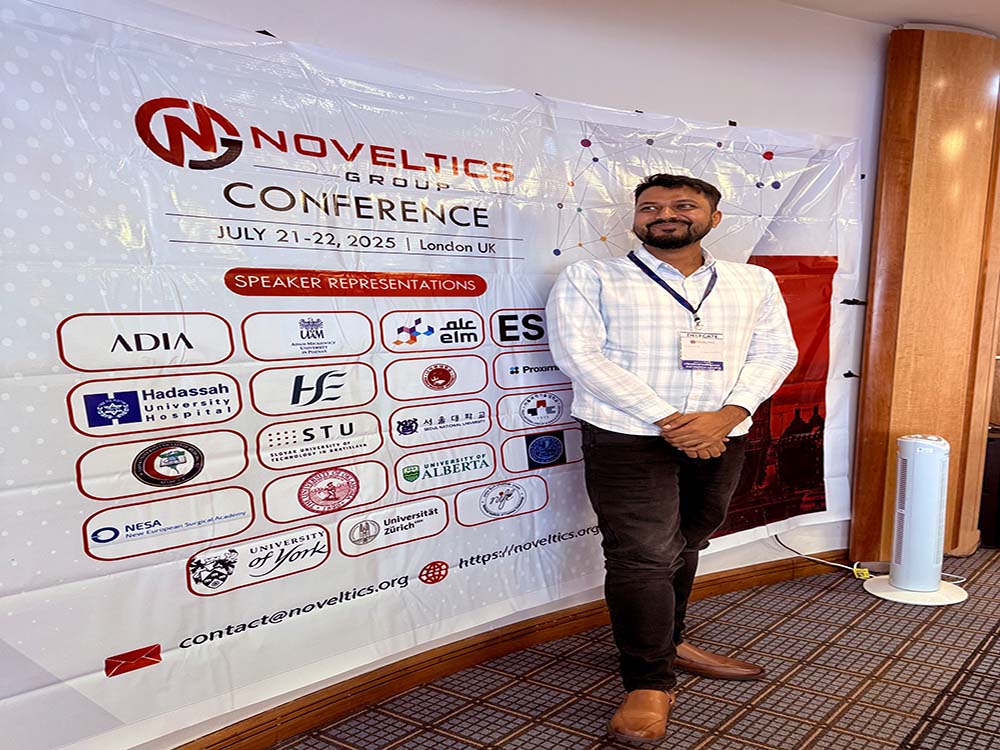

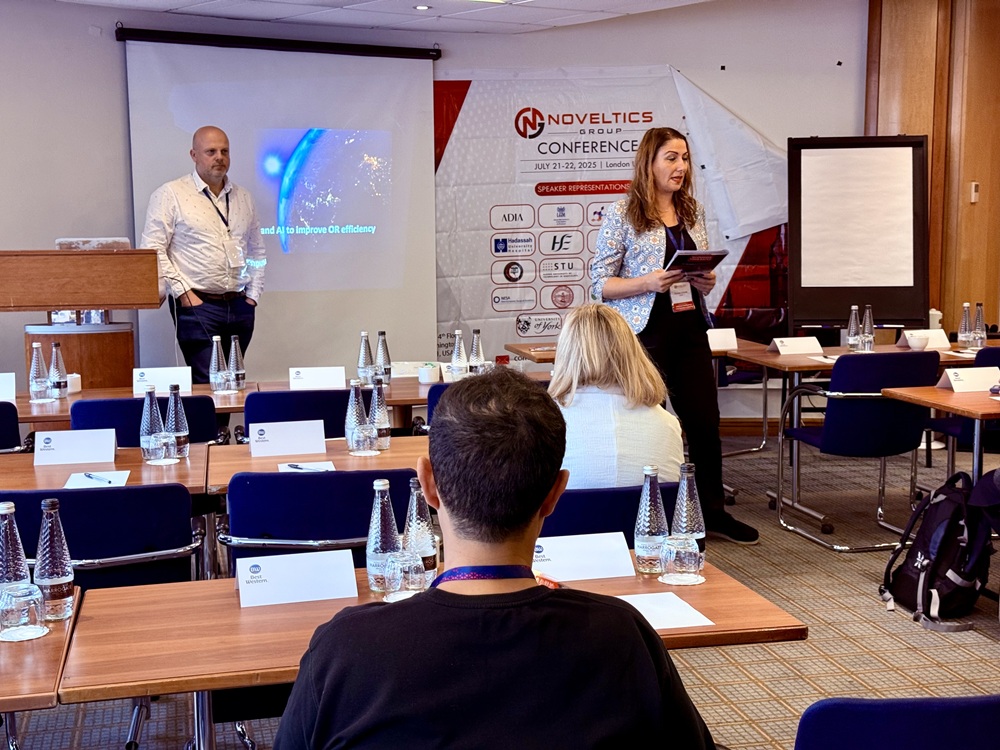














"I am Nazime Tuncay from North Cyprus. I come to this conference here, and it was really an amazing one. Well-organized, well-planned. Thank you the organizers. It was a great experience for me. I hope to see you next year in the next conference. Thank you."